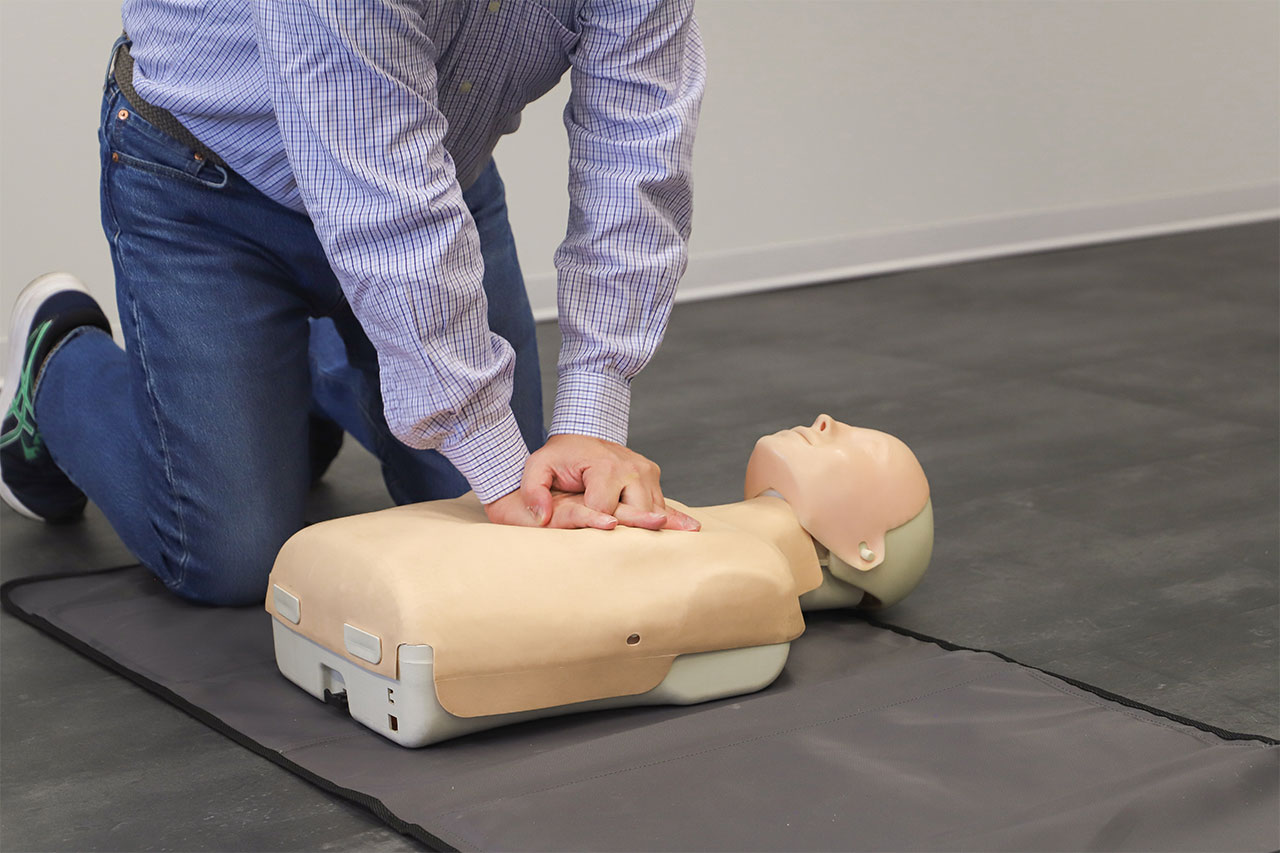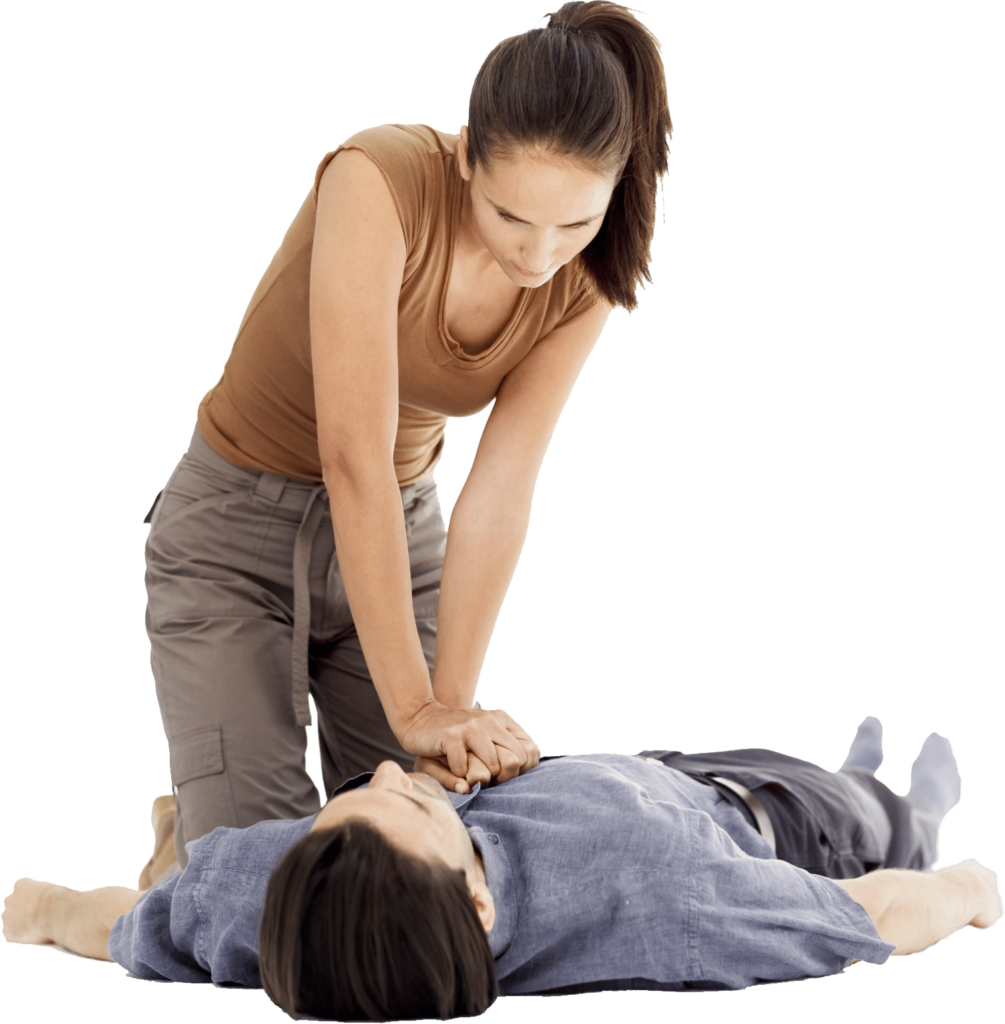

Basic Life Support (BLS) training is an essential skill set that equips people to handle various medical emergencies. This type of training teaches you how to sustain life and support someone who is injured or ill until professional help arrives. BLS training is especially important for healthcare professionals, educators, parents, and anyone interested in learning CPR. By knowing these skills, you can act quickly and efficiently during emergency situations, which can be the difference between life and death.
One of the main focuses of BLS training is CPR, or cardiopulmonary resuscitation. CPR involves chest compressions and rescue breaths that help maintain blood flow and oxygen to vital organs. In addition to CPR, BLS training also includes the use of an Automated External Defibrillator (AED) for adults, children, and infants. Being trained to use an AED can further enhance your ability to save lives.
Another important component of BLS training is learning how to handle airway obstructions. This involves techniques like the Heimlich maneuver, which can prevent choking. Through structured sessions, you will gain the knowledge and hands-on experience needed to perform these life-saving actions with confidence. In the following sections, we will delve deeper into what BLS training entails, the key components, and how you can get certified in Dallas.
Basic Life Support (BLS) training is designed to prepare individuals to respond to life-threatening health emergencies. It teaches fundamental skills needed to stabilize someone until more advanced medical care can be given. BLS training covers crucial techniques like cardiopulmonary resuscitation (CPR), which combines chest compressions and rescue breaths to maintain blood flow and oxygen to the brain and other vital organs.
Another major aspect of BLS is the use of Automated External Defibrillators (AEDs). These devices are vital for restarting a heart that has stopped or is beating irregularly. BLS training will teach you how to use an AED effectively for adults, children, and infants, making you versatile in various emergency situations.
In addition to CPR and AED use, BLS training includes handling airway obstructions. You’ll learn the Heimlich maneuver and other techniques to clear blocked airways. This makes BLS training very comprehensive, preparing you for different emergencies that may arise in both professional and personal settings.
A BLS training course covers several important elements. Below are key components you will encounter:
1. CPR for All Ages: The course will teach you different techniques for performing CPR on adults, children, and infants. This ensures you are prepared to help people of all ages.
2. AED Training: You will get hands-on experience using an AED. Knowing how to operate this device can greatly improve the chances of saving someone’s life during a cardiac emergency.
3. Heimlich Maneuver: Learn how to perform the Heimlich maneuver and other methods for removing airway obstructions in both adults and children.
4. Certification: Upon completing the course, you will receive an American Heart Association (AHA) CPR Certification E-Card. This card is often required by employers in healthcare and education sectors.
5. Skill Retention: The course emphasizes regular practice and refreshing your skills. This is vital because being able to recall these techniques quickly can make a huge difference in an emergency.
These components make BLS courses very thorough, giving you the practical skills needed to respond to emergencies effectively. Whether you are a healthcare professional, educator, or a concerned parent, BLS training equips you with the knowledge to save lives.
Basic Life Support (BLS) training benefits a wide range of people. Here are some of the key groups that can gain significantly from BLS training:
1. Healthcare Professionals: For doctors, nurses, and EMTs, BLS training is often a job requirement. Understanding how to perform CPR, use an AED, and clear airways is crucial. BLS certification ensures they can provide immediate, effective care before advanced help arrives.
2. Educators: Teachers and school staff can encounter emergencies with students. Knowing how to handle these situations can be life-saving. BLS training prepares them to manage incidents like choking or sudden cardiac arrest in a calm, efficient manner.
3. Parents and Caregivers: Parents and caregivers of young children need to be ready for any emergency. BLS training gives them the skills to act swiftly if a child stops breathing or experiences a cardiac event. This training includes techniques for infants, adding an extra layer of preparedness.
4. General Public: Anyone can benefit from BLS training. Emergencies can happen anywhere, anytime. Being equipped with BLS skills makes you a valuable first responder in your community.
These benefits underline the importance of BLS training for different groups. Whether you’re a healthcare worker, an educator, a parent, or a concerned citizen, having these skills can make a significant impact.
Enrolling in BLS training classes in Dallas is straightforward. Here’s how you can get started:
1. Choose a Class Type: Decide whether you need BLS CPR Certification or a more comprehensive CPR + First Aid Training. Both courses offer essential life-saving skills and are valuable for different needs.
2. Check Schedule: Classes are available every Thursday evening and Saturday morning, making it easy to find a time that works for you. Each class lasts about 3 hours, so you can fit it into your schedule without too much disruption.
3. Sign Up Online: You can register for the classes online. Make sure to fill in all necessary information and choose a convenient date and time.
4. Attend the Class: Attend the class at the scheduled time. You’ll receive hands-on training from experienced instructors who will guide you through all the essential components.
5. Receive Certification: After completing the class, you will receive an American Heart Association CPR Certification E-Card, valid for two years. This card confirms that you have the skills and knowledge to perform BLS in emergencies.
Enrolling in these classes ensures you are prepared to help in life-threatening situations. With flexible scheduling and comprehensive training, getting certified is both convenient and beneficial.
Basic Life Support training is an invaluable skill set that equips individuals to respond effectively in emergencies. Whether you’re a healthcare professional, an educator, a parent, or someone who wants to be prepared, BLS training can help you make a difference. Understanding the essentials like CPR, using an AED, and handling airway obstructions can save lives. The benefits of BLS training span across various groups, making it a crucial skill for anyone interested in providing immediate care during medical emergencies.
Enrolling in BLS training classes in Dallas is easy and flexible. By signing up for our classes at Rapid CPR Dallas, you can become proficient in these life-saving techniques and receive your certification quickly. Our classes are designed to be comprehensive and accessible, ensuring you gain practical knowledge and confidence.
Don’t wait for an emergency to occur. Take the proactive step of enrolling in a BLS training class today. At Rapid CPR Dallas, we’re committed to equipping you with the skills you need to save lives. Sign up now and be prepared to make a difference when it counts the most!

